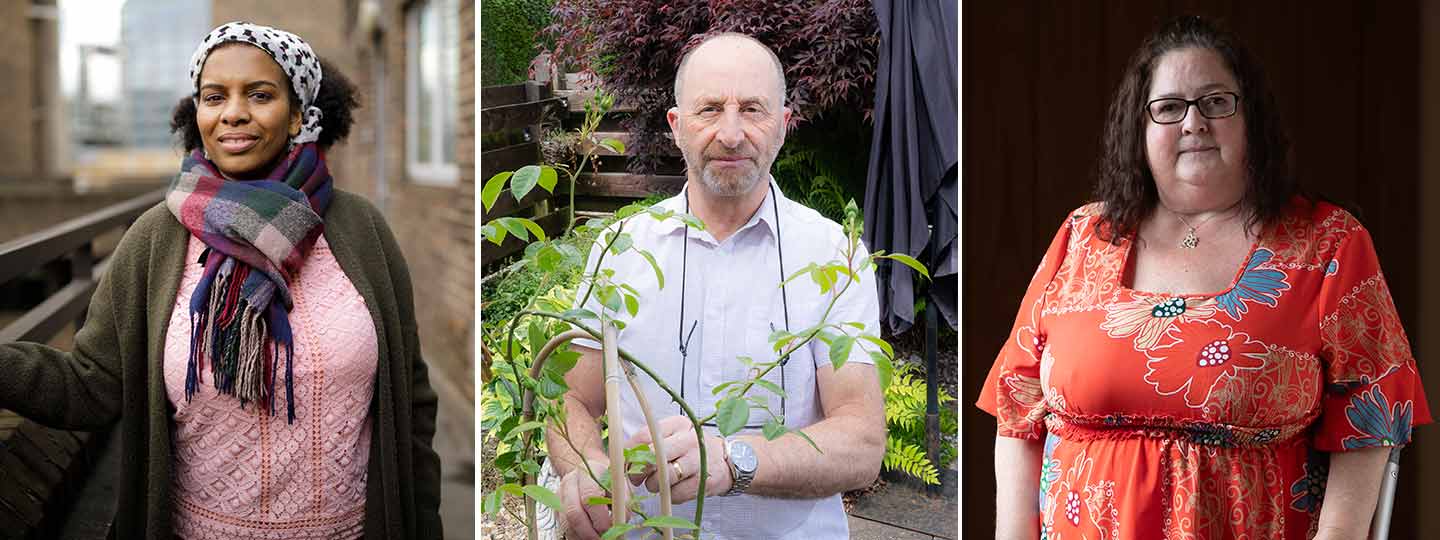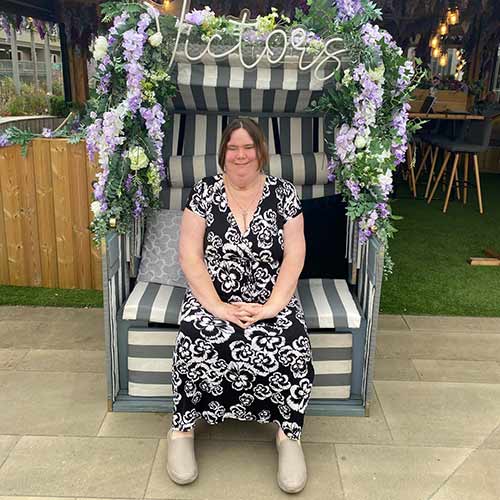Disability benefit changes: what they mean– and how our campaigning helped shape them
05 August 2025
In June we launched our Cut to the Bone campaign, calling on the UK Government to rethink its proposed cuts to disability benefits. In response, almost 40,000 people emailed their MPs, calling on them to vote against these cuts.
And our campaigning worked. Because of our community and the voices and actions of so many others, the UK Government made important changes to their plans.
We know that this has been a stressful and confusing time for many people, so here’s what some of the changes might mean for you.
What were the proposed changes to disability benefits?
In March, the UK Government published plans for possible future changes to our welfare system – including plans to restrict eligibility for the Personal Independence Payment (PIP) so that fewer people can claim it.
This was particularly worrying for our community. People with arthritis are the second largest group who rely on this type of support, so the impact of these changes could have been devastating. Research found that 77% of people with arthritis who receive PIP in England and Wales – around 214,000 people – would be at risk of losing PIP altogether.
We know that life costs more for disabled people and people living with a long-term condition like arthritis. Benefits like PIP can help with the extra costs of everyday tasks or getting around. It’s a lifeline to many.
We were also concerned about the impact these cuts could have in Scotland and Northern Ireland. While disability benefits are devolved, the proposed changes would have led to less money available for people who rely on this support here, too.
That’s why we launched our Cut to the Bone campaign, calling on the UK Government to rethink their plans.
"There’s so many things I use that were bought with PIP, including prescriptions as arthritis is not on the list of conditions exempt from prescription charges. Once they need replacing, what would I do if I didn’t have PIP? I couldn’t work full time to plug that gap, as well as managing all my hospital appointments and my health. Medications and biologics, joint replacements, are good, but there is damage from my arthritis that isn’t going to go away that I have to live with – and PIP helps me to do that."
Our campaigning made a difference
In England and Wales, cuts to PIP were voted on in Parliament on 1 July – and tens of thousands of people emailed their MPs calling on them to vote against them.
Alongside your emails to MPs, Versus Arthritis met with MPs, submitted our response to the Pathways to Work Green Paper, and wrote to the Secretary of State for Work and Pensions, Liz Kendal – making sure your concerns were heard at every level.
Our campaigning made a difference. Over 120 Labour MPs spoke out against the Bill, and during the debate many MPs expressed concerns that had been shared with them by our community.
"I speak on behalf of the hundreds of desperate people in Durham and beyond, as well as the dozens of organisations, who have contacted me with concerns about the Bill. For many, [PIP] provides them with the support they need to stay in work. If we vote for this Bill, we will be knowingly leaving vulnerable people without the support they need to live dignified, independent lives, free from poverty, when we should be supporting and championing the rights of disabled people, their carers and their families."
As a result of your campaigning and our work behind the scenes, the UK Government scrapped all of the planned cuts to PIP from the Bill.
What do disability benefit changes mean for you?
The Bill has been passed and is now known as the Universal Credit Act, but what does this mean for you?
If you’re currently receiving PIP you will be able to continue claiming as normal. This also means that if you are due for reassessment soon, or if you are claiming for the first time before Autumn 2026, you will be assessed under the same criteria as before.
However, there will be a review of the entire PIP assessment process soon. This is called the Timms Review. The UK Government has committed to working with disabled people and organisations as part of it.
We had called on the UK Government to work with disabled people to fix the system, not against them – so this is good news. Recommendations will be made following the review in Autumn 2026, and changes to PIP may come from this.
We’ve already spoken to the Minister of State for Social Security and Disability, Stephen Timms, about this review process, calling on him to make sure that people with arthritis are a priority. Any new PIP process must consider fluctuating conditions like arthritis – something the current system fails to do.
But we know that it’s not just PIP – many of you also claim the health element of Universal Credit (UC) and Low Capability for Work and Work Related Activity (LCWRA), and will be worried about how changes to this support will affect you.
If you are currently receiving the health element of UC and LCWRA the amount you receive will not be cut, and the money you receive will increase every year until the end of this Parliament. However, if you apply for the health element of UC and LCWRA after April 2026 the amount you receive will be much less (almost half) and will be frozen until the end of this Parliament, meaning it will not increase every year.
This will also be the case if you have previously claimed the health element of UC or LCWRA, stop for a period of time and then reapply after April 2026. Your application will be treated as a new claim, meaning you will relieve less and this amount will be frozen.
However, if you have a lifelong condition and claim the health element of UC or LCWRA after April 2026, you could potentially get a higher award. This will be known as the Severe Conditions Criteria, and will be hard to meet.
There are also proposals to change the rules for younger people claiming the health element of UC. If these proposals go ahead, you will need to be at least 22 to qualify. This means that young people under the age of 22 may no longer be able to claim this type of support, even if they have a health condition or disability. These are still just proposals and we don’t know if or when it will happen, so we’ll keep a close eye on how things progress.
“The worst bit is the outcry that everyone who gets disability benefits is a scrounger. Sure, there is some abuse of the system, but having been through two PIP assessments, it is not easy. I sometimes even feel like a fraud as I’m still working, but PIP helps me to stay in work. The government and the media have demonised some of the most vulnerable people in the country.”
What’s next for our campaigning?
Our campaigning really made a difference. People with arthritis came together to call for change, so we’re pleased the UK Government listened to our community and announced their U-turn on PIP.
However, despite the changes, we want to ensure that the UK Government doesn’t simply delay proposed cuts to PIP or make changes to eligibility criteria in the future. We also know how worrying the passing of the Universal Credit Bill is for many people on the health element of Universal Credit.
That’s why we won’t stop campaigning on this important issue.

We’ll continue to call on the UK Government to make sure that cuts and stricter eligibility rules do not re-emerge. We will continue to unite with other disability, health and care charities and push for a fair and compassionate benefits system for everyone in our community across the UK. Not just now, but in the future too.
“I agree that the welfare system needs to be looked at but please look at things in a fair and equitable way, and please don’t pick on some of the most vulnerable people in society. Any changes need to be done properly. Stick to your promise and work with disabled people.”
We're here to help if you need it
We know how stressful this has been for so many of you, so if you would like to talk to someone, remember you can:
- Call our free helpline on 0800 5200 520
- Chat with our Arthritis Virtual Assistant (AVA)
- Join our online community
- Stay in touch and follow us on X, Facebook and Instagram